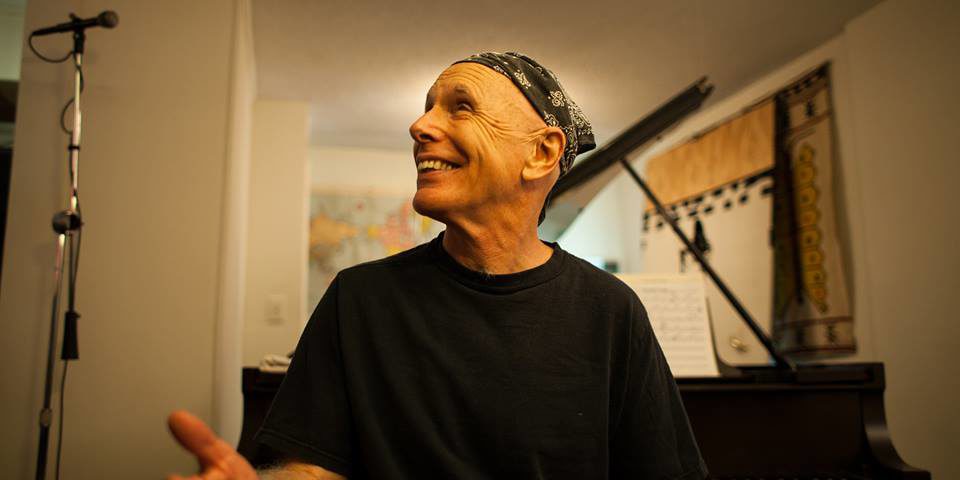Pianist, composer and teacher Bill Gordon started playing professionally at age fourteen as drummer and leader of his rhythm & blues showband in Baltimore. He later studied piano and composition at the Wiesbaden Conservatory in Germany, graduated Berklee College of Music, and since has composed, performed and produced mainstream jazz, evocative solo piano ballads, quirky pop songs, a quasi-avant-garde funk fable, written for film and TV, and enjoyed decades of teaching.
Bill has recorded extensively, appeared as soloist, accompanist, music director, sideman and band leader throughout the United States and Europe, and taught music privately and at colleges in Boston, New York City, Raleigh, Los Angeles, Miami, Vienna and now back in Baltimore. He currently writes and performs with jazz, soul and indie-pop singer/songwriters, does annual European tours, and continues composing TV and film tracks (The Glass Castle, Nashville, CSI, Entourage, etc.).
Bill taught at SAE Institute media school in Miami for nine years and wrote their music and music business courses. He presents song, performance, and music business workshops at a wide variety of schools in the U.S. and Europe, and has published the DIY textbook It’s Music, Not Theory, Damn It! along with its companion online ear training course, as well as the online music course Music, No Theory.
THE INTERVIEW
KMP: How did you get into music education?
I went to music school solely to learn about music; making a living barely entered my mind. I substitute taught a few classes at Berklee, and started teaching piano to neighborhood kids. It felt comfortable and natural, leading to a large private practice. As I learned how to be an effective teacher, I realized there were ways in which things had been taught to me before Berklee that were unnecessarily confusing. So I mounted a campaign to avoid that by explaining things clearly and simply. Students are grateful.
KMP: Why is it, Music (damn it) and not Theory?
Because music is tangible. It has an architecture, a grammar and structure, none of which is theoretical. I know it’s semantically popular to separate practice from theory, which may be helpful in some subjects. But if we learn what makes music work while we’re learning how to play an instrument or compose, not divorcing one from the other, it gives a quicker, truer sense of what’s going on. It’s much more fun than looking at a diagram of the cycles of 4ths and 5ths! And it holds up really well under the weight of thousands of pieces of music in every conceivable style.
KMP: What is the first piece of music that made you cry?
Probably a recording of Debussy’s La Mer. Later, there was the first moment when I could actually play a bit of a piece. It was Chopin’s Prelude in Db. I was pretty much a 24 year-old beginner piano student and couldn’t really play anything short of a simple blues. But my extraordinary piano teacher at Berklee, Ed Bedner, was unfazed. He showed me how to play a single note, letting it sing; he trusted my love for music, and that playing the piano would eventually emerge. And indeed, I went to bed one night unable to make music of even the first few lines of that Chopin I’d been working on for months, then awoke the next morning, sat down and suddenly there was this glorious stuff coming out of my fingers. I wept like a child, but kept playing for fear the moment might evaporate. Oh thank you Ed Bedner!
KMP: Who are some of your musical influences?
Pretty much everyone, and far too many to list completely. Very roughly and sort of chronologically: Louis Armstrong, Ella Fitzgerald, Duke Ellington, Stravinsky, Chopin, Dave Brubeck, Ramsey Lewis, Elvis Presley, Little Richard, James Brown, Curtis Mayfield, Otis Redding and everyone at Stax, Aretha Franklin, Etta James, the Beatles, Cream, Jimi Hendrix, Jefferson Airplane, Thelonious Monk, Carol King, Blood, Sweat & Tears, Bach, Bootsy Collins, Teddy Wilson, Iron Butterfly, Mary Lou Williams, Gary Burton, Bartok, David Sholl, Double, Chris Cunningham, Tracy Chapman, Steely Dan, Amy Winehouse, Natalia Lafourcade, and all of the singers I’ve worked with since the mid-70’s.
KMP: Do you have any advice to give musicians who are just starting out?
Be patient. Breathe. Sing. Learn to play by ear… and how to read music, even just a little bit. Learn mostly by playing pieces of music, not exercises. Yet learn and love your scales, too – all of them. Learn at least a little movable do solfege. Sing. Breathe. Be patient. Listen to a very very very wide range of music from every era. Be aware of this at all times: Music learning can be a slow, mysterious path. It embraces and abandons, seemingly capriciously. It is wonderful and humbling, stretching an entire universe of heart, body and mind. The rewards are worth every moment we put into it. Breathe. Sing. Be patient. Brace yourself for how wonderful and dreadful the whole damn enterprise can be.


